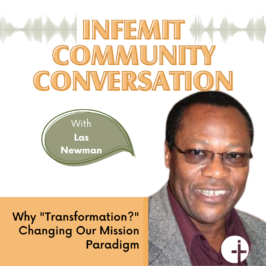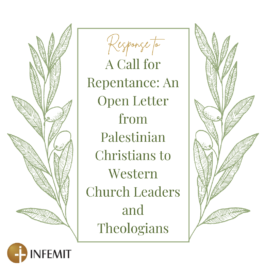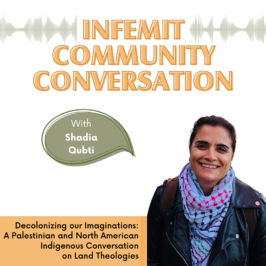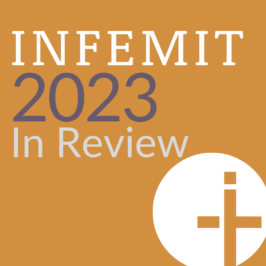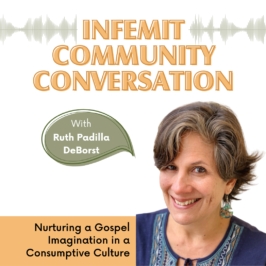2018 Stott-Bediako Forum
Peace Building and Conflict Transformation
The Church in Response to Political Conflict
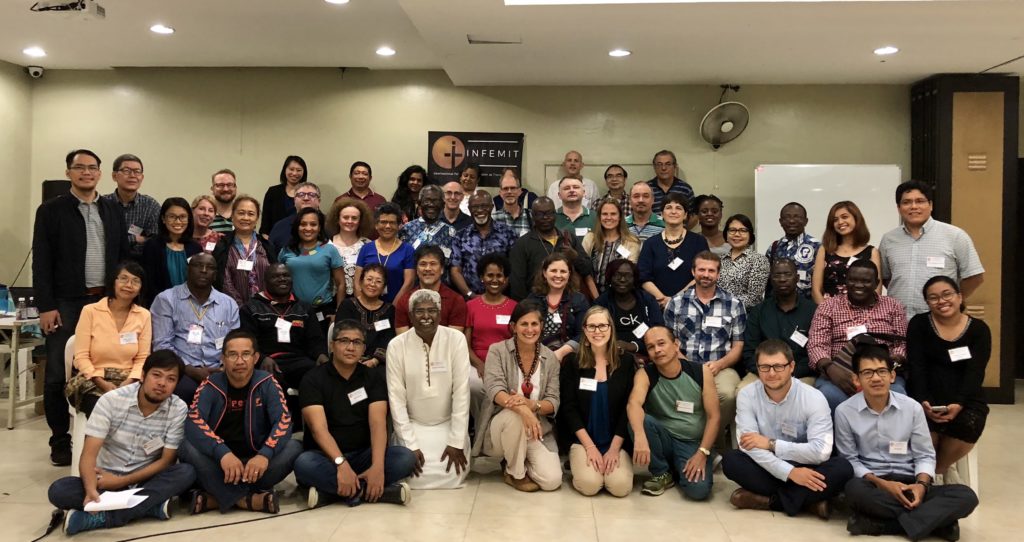
2018 marks the seventh year in which INFEMIT has held the Stott-Bediako Forum. It is a space in which we remember those who have gone before us to clear new paths in missiology and theology, paths that we walk together – practitioners and academicians, women and men, people from all regions of the world and stages of life. These are paths paved by the dust and stones of our lived realities, the day-to-day questions we face in our contexts. It is also a space in which we seek to reflect together on the issues arising in our world and imagine what kinds of transformation are needed for a better future.
The past several years have witnessed an emergence of a new global political scene; fears of violence, mass-migration and the “other” have driven many societies to elect the “strongman.”¹ Populations have often decided to place power in the hands of those willing to take measures of violence, to voice fear in discriminatory and racist language, and to present easy and extreme solutions to the problems they perceive. In each of our societies and as global reality, this shift is built on long histories of political tension, oppression, and violence against certain groups and minorities. We are convinced that the role of the Church in the midst of this rising tide of fear and injustice must be one of peace-building and conflict transformation. For that reason, we gathered this year at the Stott-Bediako Forum to reflect on the topic: Peace Building and Conflict Transformation: The Church in Response to Political Conflict.
This Stott-Bediako Forum gave us the opportunity to hear from one another about the current and historical conflicts we are facing in our various contexts: from the Philippines to Uganda, India to Colombia, Lebanon to the Ukraine. Our plenary speakers, Melba Maggay, Bishop Zac Niringiye, Alia Abboud, and David Lim, planted different challenges to us from their experiences in activism, discipleship, and formation in the face of political violence and conflict. We also had an incredible group of young scholar-practitioners and local scholars who led reflection and discussion during breakout sessions: Rudolf Gaisie (Ghana), Richelle Ann Buan (Philippines), Ana Rica Navarra (Philippines), Laura Yoder (U.S.), Alvin Jimenez (Philippines), Angeline Dellosa-Rodriguez (Philippines), Jeferson Rodriguez (Colombia), Sam Ngaihte (India), Bernard Moreno Bragas (Philippines), Nestor Ravilas (Philippines), Wilfredo Laceada (Philippines), Antatoliy Denysenko (Ukraine), Priscila Barredo (Mexico), Athena Gorospe (Philippines), and Jocabed Solano (Panama).
The forum granted participants the opportunity to encounter Christians from across the world, and to gain greater understanding of the conflicts we each face as well as some of the creative initiatives we are taking to confront them. However, we also had to acknowledge the indefensible reality that we represent a minority within the global church. In each of our contexts, many Christians and churches justify taking part in the oppression and violence being fomented by our governments. The vocation of the church in the midst of conflict is far from universally understood. Awareness of this sad reality left participants at this year’s forum pondering a two-sided question: What tangible efforts and creative proposals can I be making amidst the conflicts in my own context? And, what kind of transformation – new wineskins – are needed for the church locally and globally so that she may respond as witness and promoter of God’s peace?
These questions are far from being answered; they are commitments we must take with us as we return home and journey throughout our lives. However, we can highlight some vital recommendations that were made:
- The Church must be a proponent of justice for all. We cannot be power brokers in politics to insert our own interests. Instead we are called to participate for the sake of the common good and justice, especially for the marginalized and oppressed.
- A critical role of the Church is that of creating a new social imagination. We need to articulate an alternative way of viewing the world so that people can begin to dream of and work toward new realities.
- We must be attentive to history in our pursuit of peace building, investigating the roots of conflicts and not just their current expressions.
- The Church must recognize the current and historical role it has played in building societies of conflict and injustice; we must lament and repent – turn away from this pattern of seeking power for ourselves.
- We need to embrace and participate in building new wineskins – rethinking the Church in a way that it can truly be salt and light, a source of transformation, in our day.
As INFEMIT, we are committed to generating reflection and resources that can be a source of encouragement and transformation for the church in the various regions of the world. We are committed to reflecting on significant issues within and in light of our contexts, to fostering a sense of community as we do so and to raising up a new generation of theologian-practitioners who take these concerns seriously. This Stott-Bediako Forum has provided an important opportunity to move toward those objectives; however, it also revealed that significant follow-up is needed. These conversations must continue. For that reason, we have decided that over the course of the next several months, we will be publishing final or near-final drafts of speakers’ papers on our website in the form of a blog so that we can invite conversation and reflections from others in our global community. We invite you to keep an eye on our website for these publications and to participate in the conversation with us.
Finally, we want to acknowledge the incredible support we received in the planning and implementation of this year’s forum. We thank our generous hosts, the Center for Community Transformation in Tagaytay, Philippines. And we are extremely grateful to Micah Global, who invited us to hold this year’s forum alongside the Micah Global Triennial gathering, and in so doing, made it possible for many people to participate from each region of the world who might not have otherwise been able to attend. We are also thankful to the INFEMIT Networking Team, the Stott-Bediako planning team, and other leadership who contributed to organizing the event. To the many sponsors, churches and organizations who gave grants or provided travel funds for participants and speakers, we thank you for making this year’s Stott-Bediako Forum possible. And finally, we thank God’s Spirit for revealing truth and offering comfort as we drew together around such complex and painful realities.
To the seventy-five participants who attended the forum, thank you for coming and for sharing your voice in this vital conversation. We commend you all and the global community of Christ-followers to the task of peace-building and conflict transformation in our contexts. Let us be people who follow the path of the cross, dying to ourselves that we might be bearers of peace, love and justice in our world.
[1] “A Call for Biblical Faithfulness Amid the New Fascism:” https://infemit.org/call-biblical-faithfulness/
